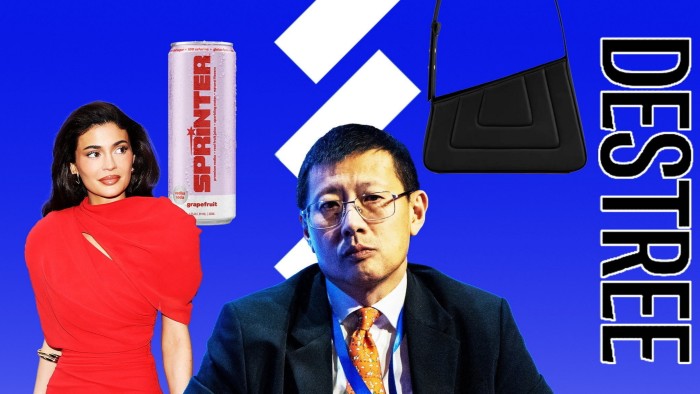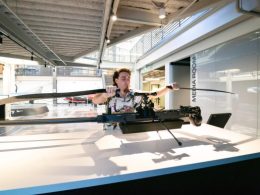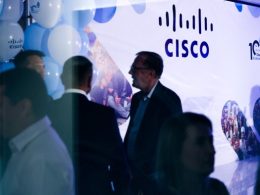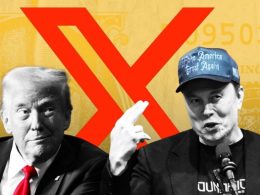Sequoia Capital’s former China unit has accelerated its push for global deals, investing in celebrity-backed start-ups such as Kylie Jenner’s Vodka seltzer company, as it struggles to deploy its $9bn cash pile in a sluggish domestic market and tightening US controls.
HongShan, which split off last year from one of the world’s largest venture capital firms amid rising geopolitical tensions, has ratcheted up its hunt for deals in Europe and North Asia after facing shrinking options in China.
The Chinese investment group has done deals with celebrity-backed consumer groups such as Jenner’s Sprinter, one of the US reality TV star’s newest business ventures, as well as French women’s fashion brand Destree, co-founded by Géraldine Guyot, the wife of LVMH founder’s son Alexandre Arnault, according to multiple people familiar with the matter.
The global push comes as HongShan, led by billionaire Neil Shen, widely considered China’s top tech investor, has faced frustration from some limited partners over the pace of dealmaking for its $9bn US fund, after raising the money two years ago.
HongShan has both dollar and renminbi funds, which are managed by overlapping teams, but they are increasingly having to pursue separate strategies. The group, which closed a fresh Rmb18bn fund in March, is free to use this money to invest in hot areas in Chinese tech such as robotics and generative artificial intelligence.
“They are deploying the US fund but very slowly,” one limited partner told the Financial Times.
HongShan has invested only 10 to 20 per cent of its two later-stage funds, both sized at $3.6bn, according to two people familiar with the matter. This gives it four to five more years to invest the remaining sum.
The group has been quicker in deploying its earlier stage funds, the seed and venture funds, which are $480mn and $1.3bn, respectively — and have between 20 and 35 per cent invested, these people added.
The lack of high-growth domestic investment options has been exacerbated by Washington’s move to tighten scrutiny of American investment in Chinese high-end technology.
In August, President Joe Biden signed an executive order to ban US investment in Chinese technology with potential dual-use military application, such as semiconductors, quantum computers and AI.
Chinese funds have already pre-emptively been carving out their US LPs from deals that involve high-tech investments, according to industry insiders, leaving them with fewer promising sectors to back as less sensitive consumer companies have been hit hard from the weak economy.
HongShan has instead been using its USD funds to double down on already well-established Chinese start-ups, including building up its position in ByteDance, while buying existing shares in the fast-growing Instagram-like start-up Xiaohongshu.
In general, LPs are keen to see early deployment because it gives more time for the companies to grow in value and for the funds to recoup their investment through IPOs or mergers. LPs typically still have to pay management fees on capital that has not yet been called.
Other US backers of HongShan are more sanguine about the pace of dealmaking. “I’ve been an investor with Neil and the team from the beginning. They are one of the best investments that we’ve made,” said one, adding that HongShan’s push for global deals was a “natural evolution” for a firm of its size and track record.
HongShan is focusing more on Northern Asia and Europe after facing difficulties with US tech deals. This year it was asked to dramatically reduce its stake in HeyGen, a leading AI video company that originated in Shenzhen before migrating to Los Angeles, over national security concerns about Chinese VCs being a significant shareholder, the Financial Times reported.
In recent months HongShan has opened a London office, hiring former Goldman Sachs banker Taro Niggemann, who is charged with hunting for internet and consumer-related deals in the UK and Europe.
The move puts it in more direct competition with its former partner Sequoia, which also has an office in London focused on European start-up investments.
HongShan said: “Since our inception in 2005, we’ve built a diverse portfolio spanning Japan, Korea, Southeast Asia, Australia and Europe, proving our strategy thrives across global markets in addition to our portfolios in China.”
The Chinese investment group is hunting for consumer brands in the west, which it can help grow in Asia, as it looks to build on the success of its 2021 investment in Ami Paris, which helped the French designer brand expand in China.
HongShan participated in a $430mn fundraising round earlier this year in UK online bank Monzo, alongside CapitalG, Google’s venture fund GV and Tencent. It also invested this year in the German-based Green Energy Origin, a battery materials start-up.
It also holds a roughly 9 per cent stake in fast-fashion company Shein, which is targeting a London listing if it receives approval from regulators in Beijing, according to two people familiar with the matter.
HongShan also has plans to open a Tokyo office, according to two people familiar with the matter, although one cautioned it was still in the early stages. HongShan declined to comment on its Tokyo office plan.
Its push into Japan follows a rush of other Chinese funds building a presence there, including rival PE group Hillhouse and the Jack Ma-backed Yunfeng, which have both built a presence in the country in recent months for real estate deals.
In Japan, HongShan has invested in construction management software start-up ANDPAD, AI contract management start-up LegalForce and lithium-ion battery venture AESC, according to one person with direct knowledge of the matter.
Additional reporting by Ryan McMorrow in Beijing
Source link









